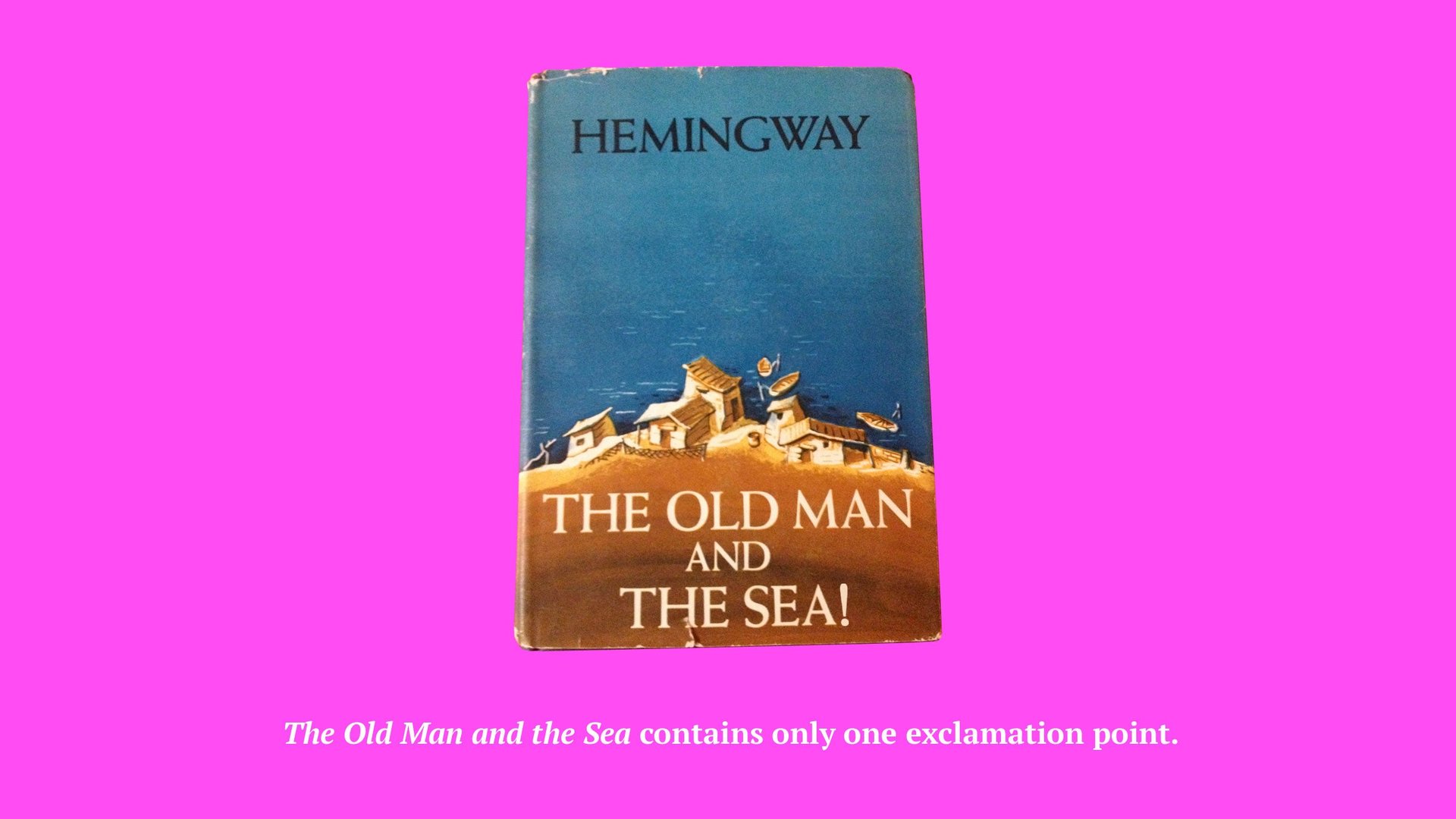Hemingway only used one, but Junot Diaz needed 299 of them!
Today is National Punctuation Day in the US! Let’s take the opportunity to survey—and put an end to—the overuse of one particular mark.



Today is National Punctuation Day in the US! Let’s take the opportunity to survey—and put an end to—the overuse of one particular mark.
I might be joking. Or not. But you don’t need exclamation marks to figure it out.
Or do you?!
The reason for the excessive exclamations has been well-documented: Tone doesn’t always translate via email, texts and Tweets and so we add smiles, winks and exclamation points. In fact, recent research published in Science Magazine found punctuation smiley faces have a stronger impact on writers than smiling emoticons. Seriously.
But now, the point is making its point in other mediums too. I ran a Google Ngram search of more than 1 million books published between 1970 and 2008, the last year for which data are available, and found that the frequency of exclamation marks has soared!
The chart above shows us the impact this is having on individual works. In 1951, Ernest Hemingway published The Old Man and the Sea—with just one exclamation mark. Sixty years later, last year, Jennifer Egan needed 108 to tell A Visit From the Goon Squad. Both won Pulitzers. Sure, Egan’s book is five times the size, but what gives? (And they both won Pulitzers.)
Blame globalization. Linguists estimate that up to up to 90 percent of the world’s languages may be extinct by the end of the century. And the ones we’re left with have certain net jargon exploding while the use of more common words is drastically declining. (I ran the word obsolete, for example, through the same 1 million books and found it is becoming, well, obsolete.)
So we’re left with the simple exclamation mark, rather than the nuances that a broader vocabulary would offer. And that doesn’t make it such a happy punctuation day after all. Or does it?